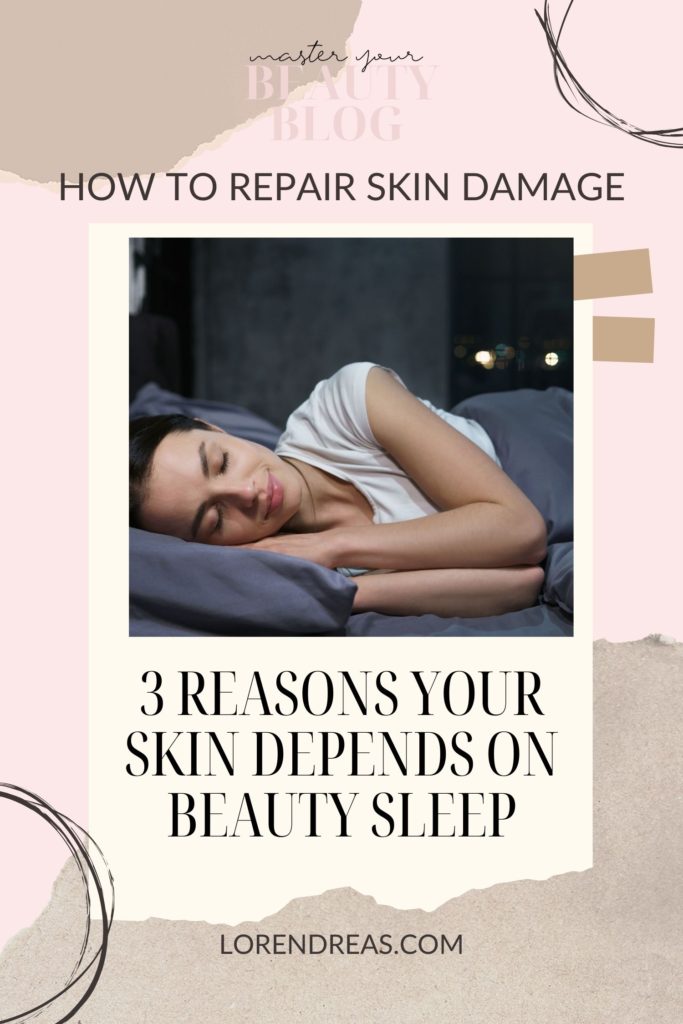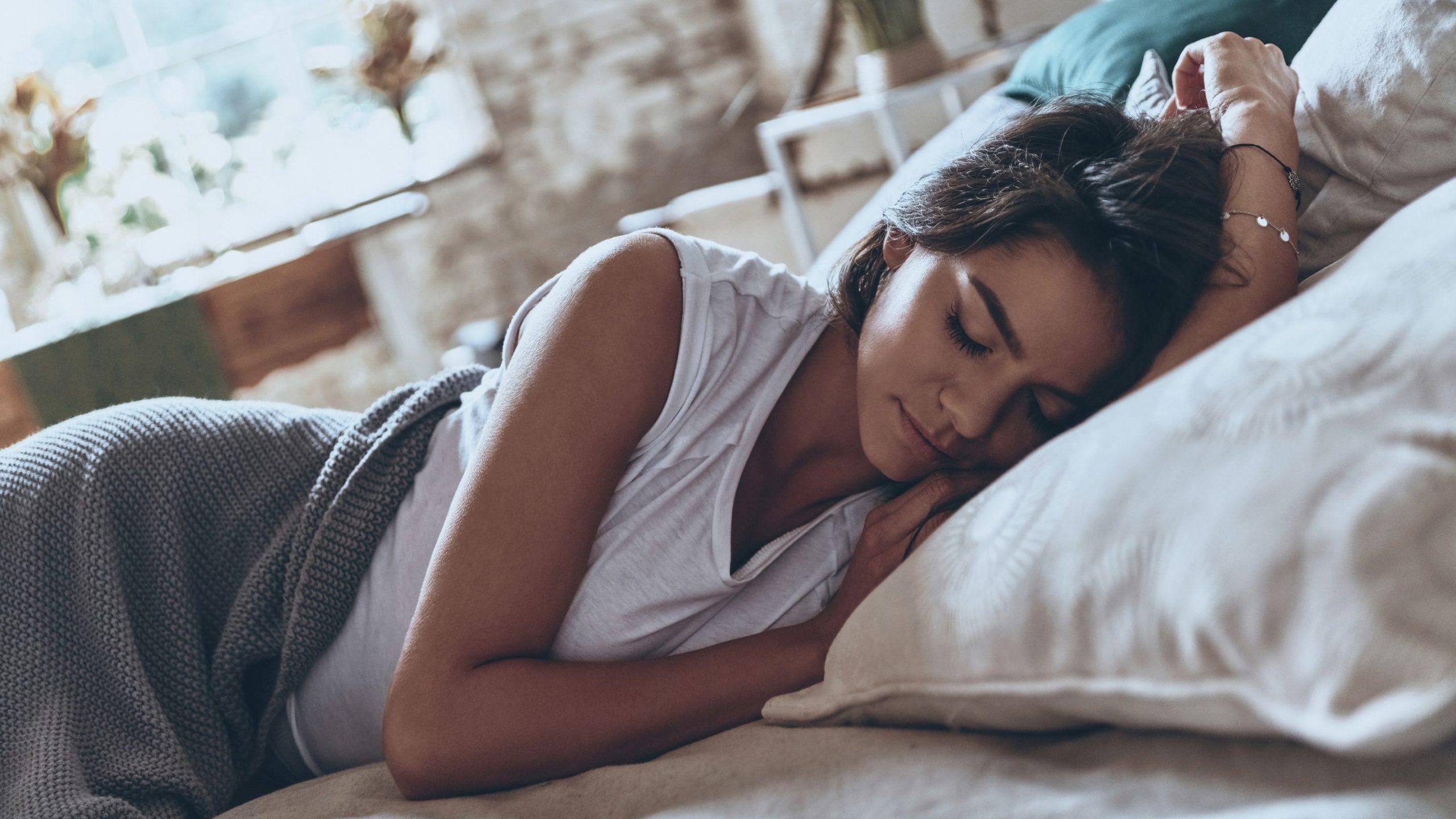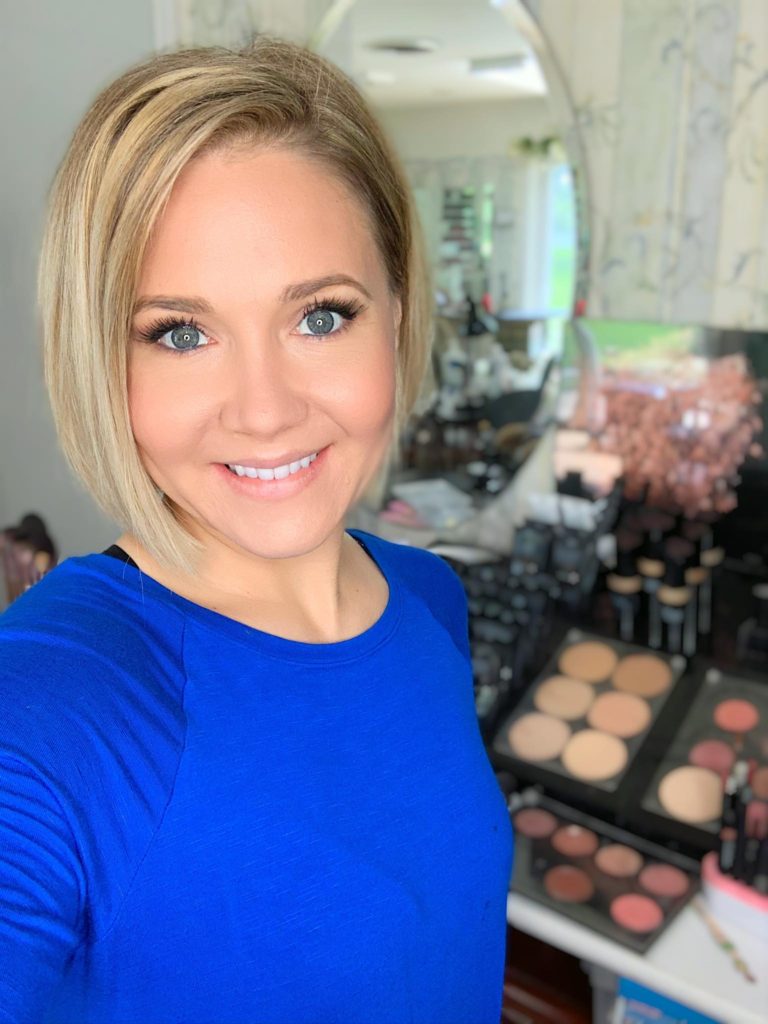We spend hundreds or dare I say, thousands on lotions and creams to tackle our biggest skin concerns, yet we often forget about the one our skin (and body!) depends on…and that’s SLEEP. Sleep is one of the most underutilized elements of a skincare routine, ESPECIALLY today since we are so bombarded by our phones and deadlines. So let’s dive into the 3 reasons why you NEED to be snoozing your way to great skin and how to repair skin damage!
Number 1: Sleep Reduces Cortisol
Now before we go attacking cortisol, let me first say that Cortisol is good for you…when it’s regulated. After all, that’s why your body produces it!
Think of cortisol as nature’s built-in alarm system. It’s your body’s main stress hormone. For instance, when your body is on high alert, cortisol can alter or shut down functions that get in the way to help you fight or flight.
The problems arise when we are living in constant fight or flight (aka stress).
A constant flow of cortisol pumping through our blood ramps up oil production (acne), breaks down collagen (wrinkles), and triggers inflammation (rashes/hives/eczema/psoriasis).
Cortisol is at its lowest when we’re sleeping – which makes sense since it’s the only time we’re completely at ease and relaxed.
SO… we need sleep.
Number 2: Sleep increases Collagen Production
While we sleep, our bodies pump out human growth hormones that help stimulate the production of collagen, which is an essential protein that helps your skin stay supple and elastic. This further allows your skin to repair acne and scarring across your body.
It’s basically like a free version of those expensive anti-aging creams.
When collagen production is impeded by poor sleep or not enough sleep, skin loses its suppleness and water retention capacity. Loss of sleep also diminishes the skin’s ability to protect itself, making skin more prone to irritation and inflammation.
TOO much sleep, on the other hand, may also cause problems for your skin in subtle and overlooked ways.
Our bodies become dehydrated when we sleep because we go up to eight hours without consuming any liquids. When our bodies lack water, our overall skin tone and complexion can appear uneven, making fine lines more noticeable.
A good way to prevent oversleeping is by going to bed at the same time every night and setting an alarm.
Number 3: Sleep Increases Melatonin
Melatonin is a naturally occurring hormone, and its main job is to help regulate the sleep/wake cycle. Darkness prompts the pineal gland to start producing melatonin while light causes that production to stop.
When it comes to skin benefits, melatonin acts as an antioxidant, working to reduce the harm inflicted on the skin during the day. In turn, signs of aging triggered by oxidative stress (stress, smoke, processed foods, environmental toxins, drugs, etc.) can be significantly improved – supporting healthier skin.
While yes, there are supplements containing melatonin that can be very helpful, you don’t want to be taking it long-term as your body should be making it on its own and you may, in fact, be covering up something more serious.
Insomnia, for example, can be caused by all kinds of physical and psychological conditions, like depression, anxiety, congestive heart failure, sleep apnea, acid reflux, hormonal changes, Parkinson’s Disease, and more.
The Sleep Foundation says it’s super important to understand what’s actually causing your sleep difficulties so you can treat the cause.
Long story short, you need your beauty sleep. Good QUALITY sleep should be just as important (if not more) than the topicals you’re using to combat your skin woes.
You. Need. To. Rest. And. Repair. Every. Night. End of story.
How to repair skin damage: Prepare for your beauty sleep
Well, not quite the end of the story… Here are a few tips that will help prepare you for a beautiful sleep.
1. Go to bed and wake up at the same time every single day. By doing so, you allow your body to develop a natural sleep cycle, also known as circadian rhythm. When your body knows the schedule, it will put itself into “sleep mode” when it’s time to get ready for bed. Understand your body’s circadian rhythm here.
3. Wash the energy of the day off of you (face, body, and teeth!) whether that’s a warm shower or relaxing bath. Add in Epsom salt to help with any aches/pains or essential oils such as lavender or chamomile to help you relax.
4. Turn off the electronics – I know it’s hard, but you MUST. Instead read, journal, pray or meditate.
Now pull those warm blankets over you, close your eyes and take some nice deep breaths.
Goodnight, Beautiful!
How do you rank when it comes to a holistic approach to your health? Take my quiz to get started HERE.





